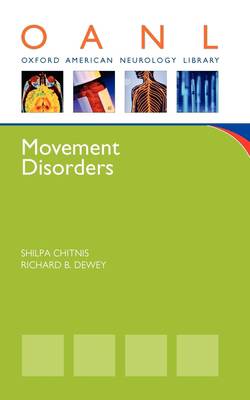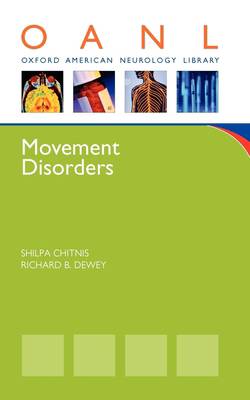
- Afhalen na 1 uur in een winkel met voorraad
- Gratis thuislevering in België vanaf € 30
- Ruim aanbod met 7 miljoen producten
- Afhalen na 1 uur in een winkel met voorraad
- Gratis thuislevering in België vanaf € 30
- Ruim aanbod met 7 miljoen producten
Zoeken
Omschrijving
Over 42 million people in the United States have been diagnosed with movement disorders, diseases which adversely affect individuals' ease of movement and, in turn, their quality of life. In the last several years, the medical community has seen a substantial increase in the public's awareness of the importance of early diagnosis and treatment of these disorders. While a number of publications exist on specific disorders, this book is designed as a concise yet comprehensive reference on all major movement disorders. Targeted toward neurologists and primary care physicians on the frontlines of care, this practical, clinically-focused volume will also benefit neurology residents and internists with its up-to-date information on diagnosis and treatment options. Providing a symptom-based approach and a simple, logical method for developing treatment plans, this volume is guaranteed to serve as a valuable resource for any physician treating patients with movement disorders. Part of the Oxford American Neurology Library, this highly practical guide covers current approaches and new developments in the diagnosis, treatment, and management of movement disorders, including tremor, Parkinsonism, dystonia, chorea, tic, RLS, myoclonus, and many other common movement disorders. The volume addresses the role of imaging studies in the diagnosis, differential diagnosis, and monitoring of movement disorders. In addition to providing up-to-date information on pharmacological therapies, the book also describes other options for treatment, including surgical management and non-pharmacological therapies.
Specificaties
Betrokkenen
- Uitgeverij:
Inhoud
- Aantal bladzijden:
- 240
- Taal:
- Engels
- Reeks:
Eigenschappen
- Productcode (EAN):
- 9780199731374
- Verschijningsdatum:
- 26/05/2011
- Uitvoering:
- Paperback
- Formaat:
- Trade paperback (VS)
- Afmetingen:
- 127 mm x 203 mm
- Gewicht:
- 240 g

Alleen bij Standaard Boekhandel
+ 151 punten op je klantenkaart van Standaard Boekhandel
Beoordelingen
We publiceren alleen reviews die voldoen aan de voorwaarden voor reviews. Bekijk onze voorwaarden voor reviews.











